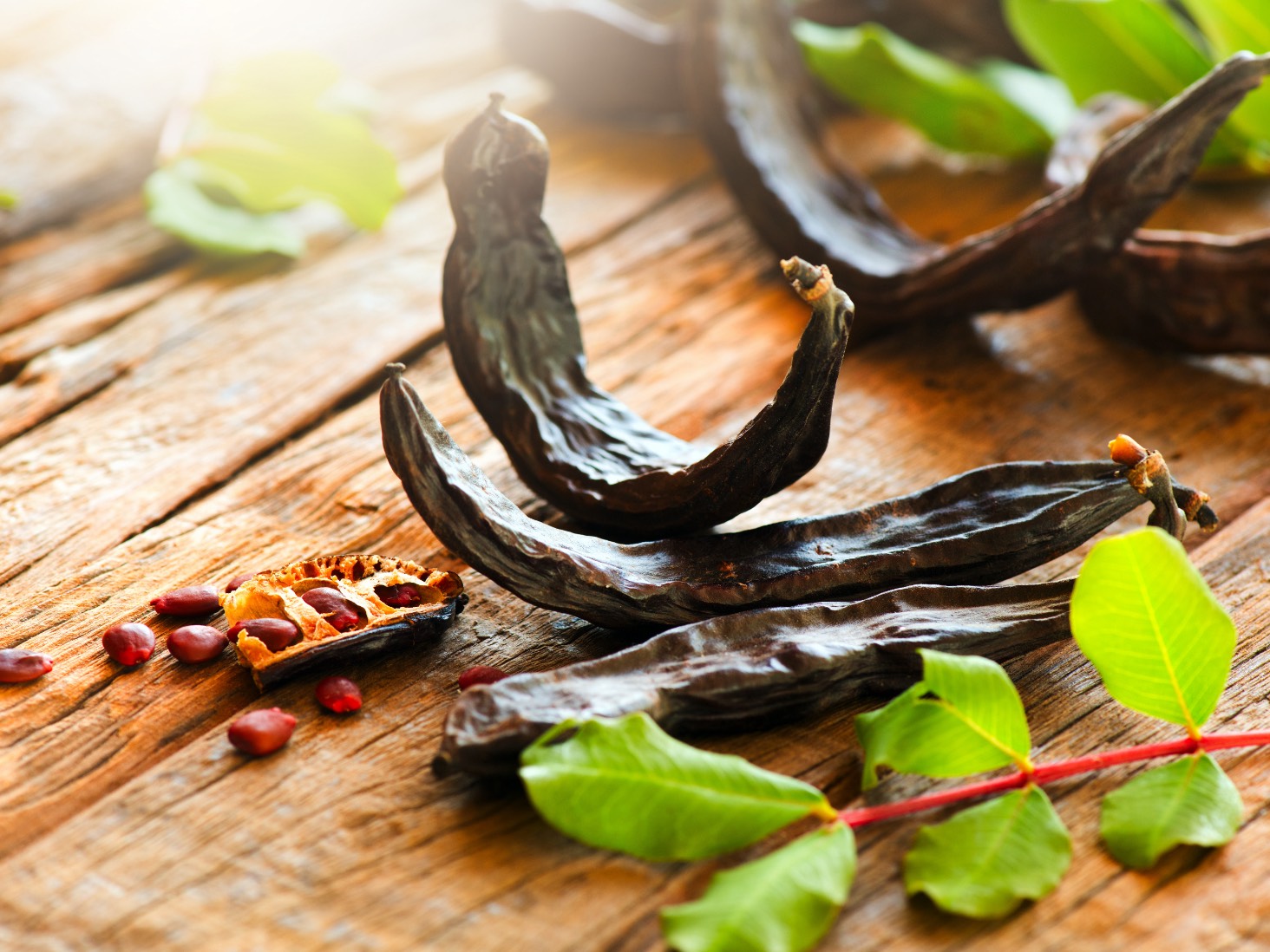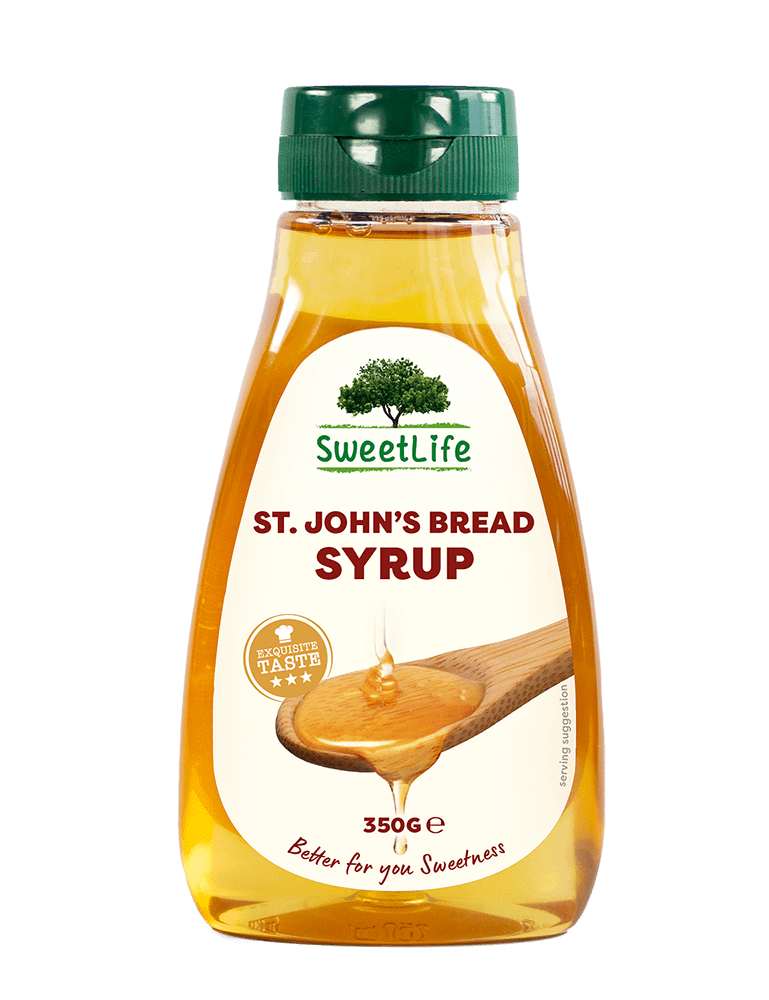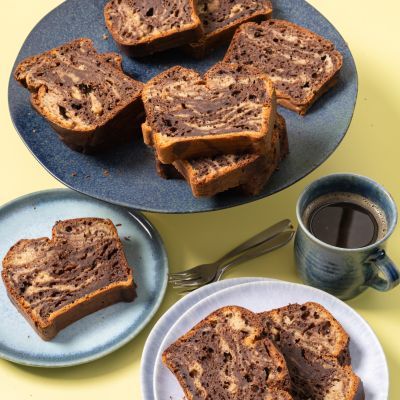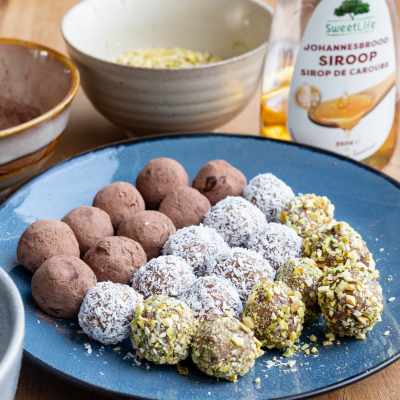SweetLife St. John’s Bread Syrup is produced from the fruit of the St John’s Bread tree, also known as the carob tree. This tree is grown in the Mediterranean and has been known since biblical times. St. John the Baptist is said to have survived for several days on the fruits of this tree. Hence the name.
The fruit pods were mainly used as animal feed, until we managed to extract the most delicate natural sweetening syrup from it!

A sweet history
The importance of the St. John's Bread tree is also reflected in the fact that the weight of a single seed from this tree was used as a standard measurement. The word carat, which is used to define the weight of diamonds, is based on this weight of approximately 0,2 gram.
The St. John’s bread tree is widely regarded as ideal for reforestation in arid climates and as a shield against wild fires. As a result of their roots structure, they are used to control erosion, preserve the soil and reclaim lands, while the unique carob fruits grow on their branches.
We love this tree so much, that the St John’s Bread tree features in our SweetLife Logo.

Better for you
- The glycemic index is around 35 % lower than sugar and about 20 % lower than honey
- It has about 25 % fewer calories than sugar and 10 % fewer than honey
- St John’s bread syrup is a source of nutritional fibre with 5 % fibre by weight as opposed to sugar or honey
Natural
- The syrup is naturally produced from the fruits of the Mediterranean St John’s bread tree
- It’s vegan (as opposed to honey) and completely cruelty-free
- It's also entirely gluten-free
Great taste
- SweetLife St. John’s Bread Syrup has a truly exquisite taste
- It has a comparable sweetness to sugar
- Thanks to its neutral taste, it can be used much more broadly than sugar syrup or honey. Applications include sweetening coffee or tea, desserts, waffles, salad dressings, etc. It's also perfectly suitable for baking and cooking, check our delicious recipes!







